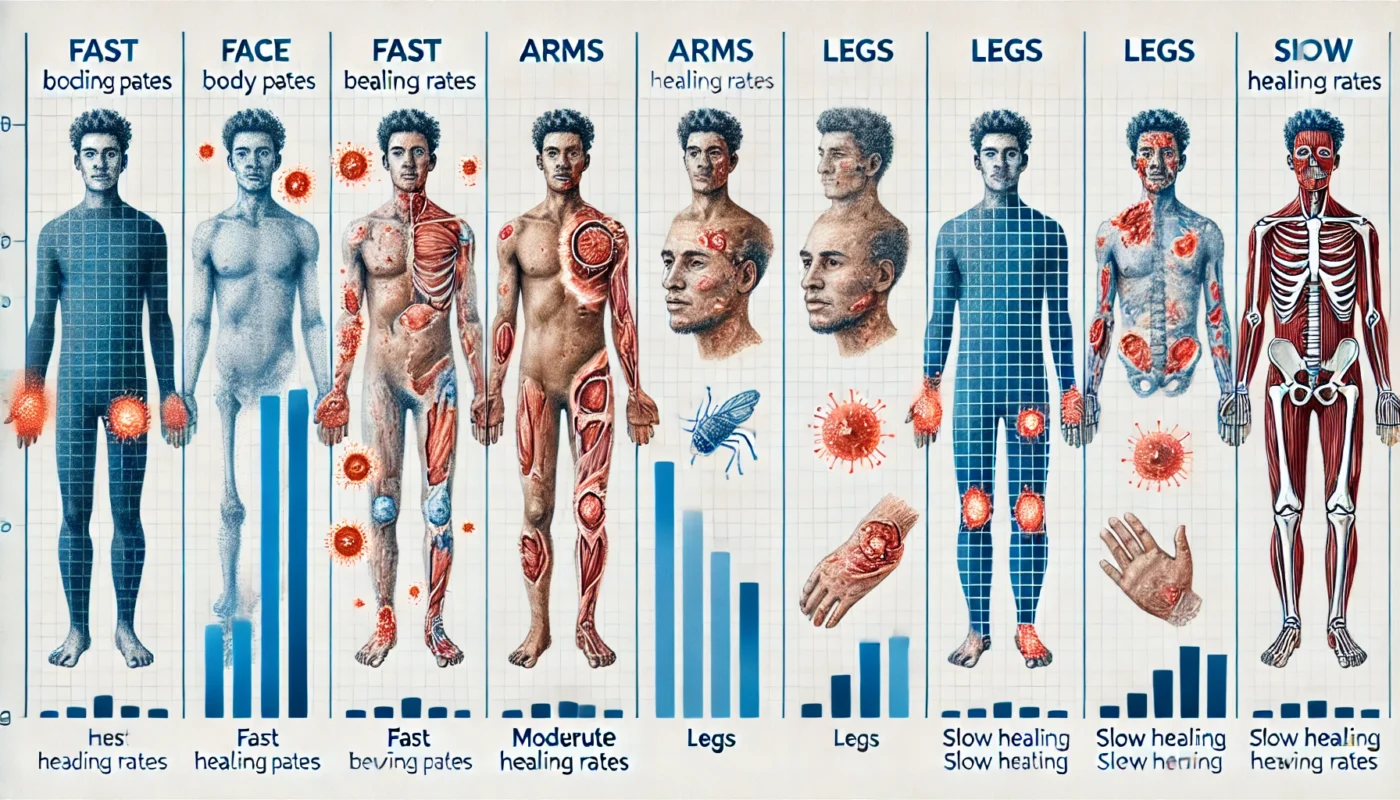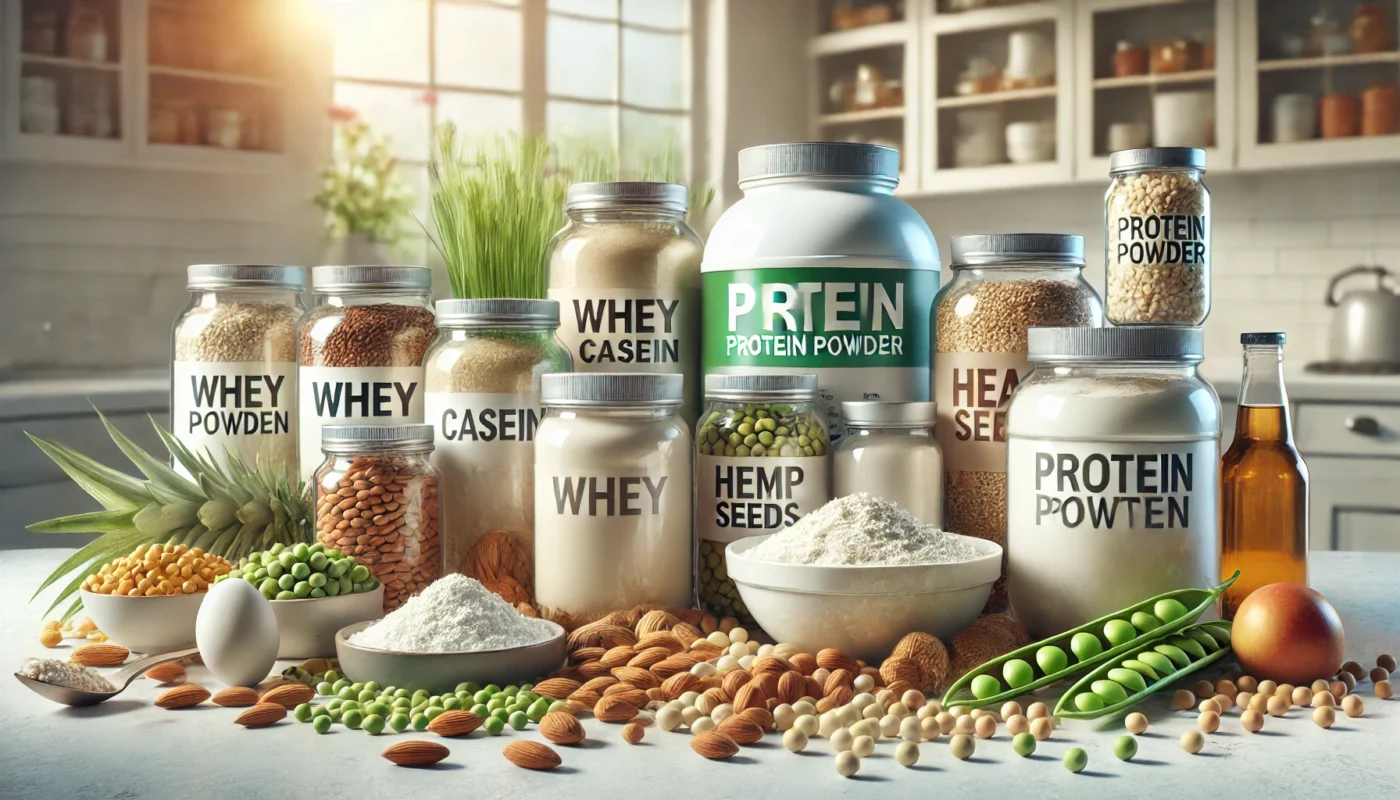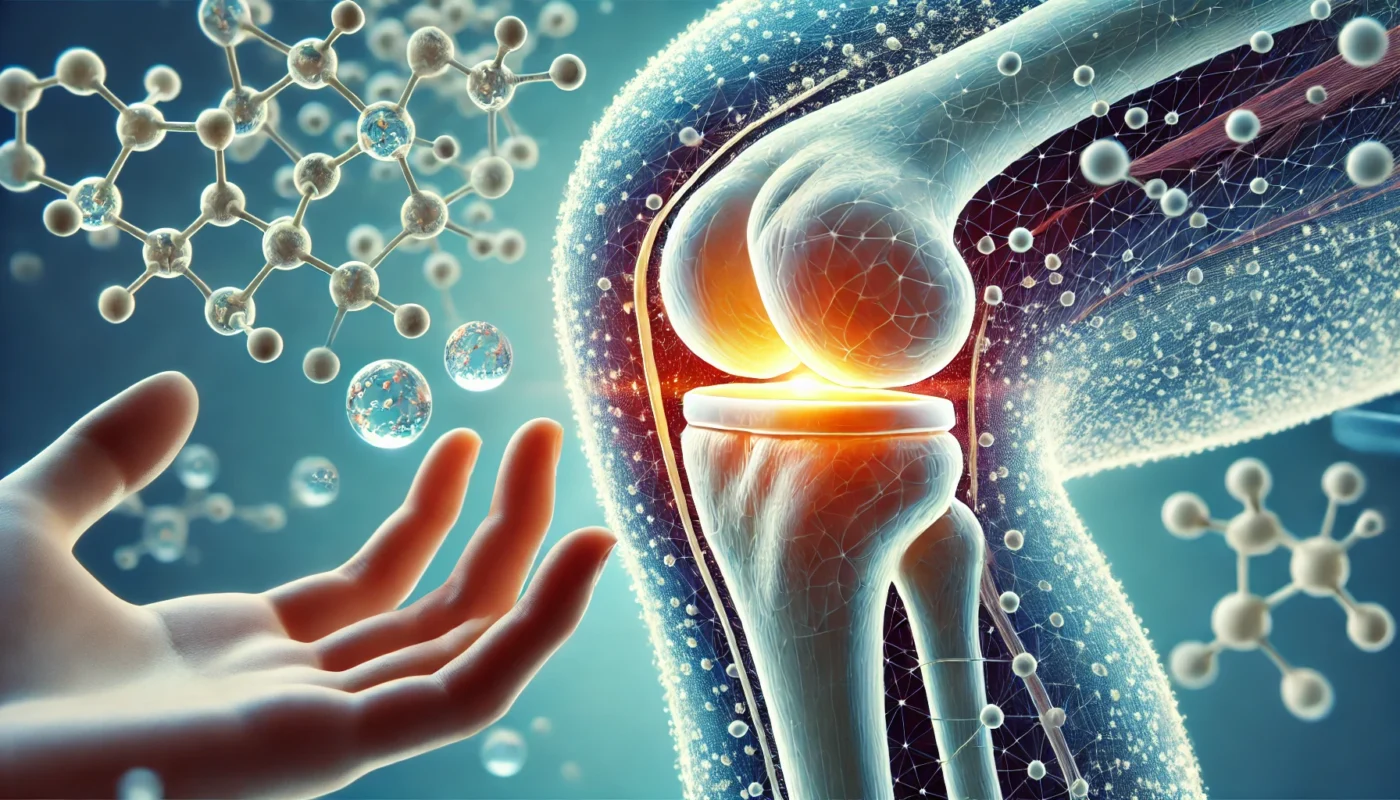Chest inflammation can be a perplexing condition, often leaving many individuals searching for answers on how to alleviate its discomforting symptoms. As an expert in health and wellness, I’m here to demystify this topic, providing you with a comprehensive overview of the causes and symptoms of chest inflammation, along with practical advice on how to manage and reduce it effectively.
Tag Archives: health conditions
Understanding the healing rates of different body parts can be crucial for fitness enthusiasts, health enthusiasts, and medical patients alike. Whether you’re recovering from an injury, managing a health condition, or simply curious about the human body’s capabilities, knowing which parts heal the fastest can guide your approach to recovery and wellness. This exploration delves into the scientific nuances and offers practical advice on optimizing healing.
Navigating the world of over-the-counter pain relievers can be a daunting task, especially when faced with options like aspirin, acetaminophen, and ibuprofen. While these medications are commonly used to alleviate pain, reduce fever, and combat inflammation, understanding their differences is crucial to making informed decisions about your health.
In the realm of nutrition and recovery, protein stands as a cornerstone, particularly when it comes to healing from injuries or surgeries. Protein powders have emerged as a convenient and effective way to supplement our diets with this essential macronutrient, playing a pivotal role in wound healing and recovery. In this article, we will delve into the benefits of protein powder for healing, examining scientific research and offering practical advice on how to incorporate it into your recovery regimen.
Before delving into pain levels, it’s crucial to understand what acupuncture entails. Acupuncture is a component of TCM, a comprehensive system of health care that has been practiced for thousands of years. The fundamental principle of acupuncture is based on the concept of Qi (pronounced “chee”), the vital energy that circulates through pathways, known as meridians, in the body. By inserting needles at specific points along these meridians, acupuncturists aim to correct imbalances and promote the body’s natural healing processes.
Navigating the world of health supplements can be a daunting task. With a myriad of options available, it’s crucial to understand what each supplement offers.
In the realm of joint health, three supplements often stand out: glucosamine, chondroitin, and MSM. These compounds are frequently used to manage conditions like arthritis and to support overall joint health.
But what are the key differences between them?
This article aims to demystify these supplements. We’ll delve into the science behind glucosamine, chondroitin, and MSM, and explore their potential benefits and drawbacks.
We’ll also compare these supplements head-to-head. This will help you understand which might be the best fit for your health goals and lifestyle.
Whether you’re a fitness enthusiast, a health-conscious individual, or a patient seeking to manage a specific condition, this article is for you.
Let’s embark on this journey to better understand glucosamine, chondroitin, and MSM, and their roles in promoting joint health.
Eggs are a staple in many diets. They’re packed with essential nutrients, making them a popular choice for breakfast and beyond.
But do eggs cause inflammation? This question has sparked much debate among health enthusiasts and medical professionals alike.
Inflammation is a natural response of the body. However, chronic inflammation can lead to various health issues, including heart disease and arthritis. Diet plays a crucial role in managing inflammation, and understanding the impact of specific foods is key.
Eggs have a complex nutritional profile. They contain elements that could potentially contribute to inflammation, but also compounds that might help alleviate it. This complexity makes the relationship between eggs and inflammation far from straightforward.
This comprehensive guide aims to shed light on this topic. We’ll delve into the scientific research behind the inflammatory or anti-inflammatory properties of eggs. We’ll also explore how eggs might affect various health conditions, such as arthritis and joint pain.
Moreover, we’ll provide practical advice on incorporating eggs into an anti-inflammatory diet. We’ll also discuss the potential effects of other related foods like turkey and chicken breast.
Whether you’re a fitness enthusiast, a health-conscious individual, or a medical patient, this guide will help you make informed dietary choices. Let’s embark on this journey to better understand the role of eggs in inflammation.
Coffee, a beloved beverage worldwide, is often at the center of health debates. Its potential effects on inflammation, in particular, have been a topic of interest.
Inflammation is a natural response of the body. It can be beneficial in fighting off infections or healing injuries. However, when it becomes chronic, it can lead to various health issues.
So, where does coffee fit into this picture? Is coffee good for inflammation, or does it exacerbate it?
This article aims to shed light on these questions. We will delve into the scientific research behind coffee’s potential anti-inflammatory properties. We will also explore the circumstances under which coffee might contribute to inflammation.
We will examine the components of coffee that may influence inflammation, such as antioxidants and caffeine. We will also discuss the role of coffee quality and preparation methods in its inflammatory properties.
Whether you’re a fitness enthusiast, a health enthusiast, or a medical patient, this article will provide you with a comprehensive understanding of coffee’s role in inflammation.
By the end, you will be equipped with the knowledge to make informed decisions about coffee consumption in relation to your health and wellness goals.
In the quest for optimal health, the foods we consume play a pivotal role. One food that has sparked debate is rice.
Rice, a staple in many diets worldwide, has been scrutinized for its potential link to inflammation. This article aims to dissect this complex topic, providing you with a comprehensive understanding of the relationship between rice and inflammation.
Inflammation is a natural immune response, but when it becomes chronic, it can contribute to various health conditions. Diet, including the consumption of rice, can significantly influence inflammation levels in the body.
Different types of rice, such as white and brown, may have varying effects on inflammation. This is due to their distinct nutritional profiles and the way our bodies process them.
We’ll delve into the scientific research behind these claims, aiming to clarify misconceptions and provide practical advice. Whether you’re a fitness enthusiast, a health enthusiast, or a medical patient, this article will offer valuable insights.
By the end of this exploration, you’ll be equipped with actionable strategies to manage inflammation through your diet. Let’s embark on this journey to better understand the link between rice and inflammation.
Protein is a vital nutrient, playing a key role in virtually every biological process in our bodies. But does protein cause inflammation? This question has sparked much debate among health enthusiasts, fitness buffs, and medical patients alike.
Inflammation is a natural response of our immune system. It helps protect our bodies from harm, but when it becomes chronic, it can lead to various health issues. Understanding the link between protein and inflammation is crucial for managing our health and wellbeing.
The type, quantity, and quality of protein we consume can influence our body’s inflammatory response. However, the relationship between protein and inflammation is complex and multifaceted. It’s not as simple as saying protein causes inflammation or it doesn’t.
This article aims to explore this intricate relationship. We’ll delve into the science behind protein and inflammation, debunking myths and providing evidence-based information. We’ll also discuss how different types of protein may affect inflammation and how to balance protein consumption for optimal health.
Whether you’re a fitness enthusiast seeking to optimize your recovery, a health enthusiast aiming to understand complex health information, or a medical patient looking for practical tips to manage your health condition, this article is for you. Let’s embark on this journey to better understand the link between protein and inflammation.
- 1
- 2










